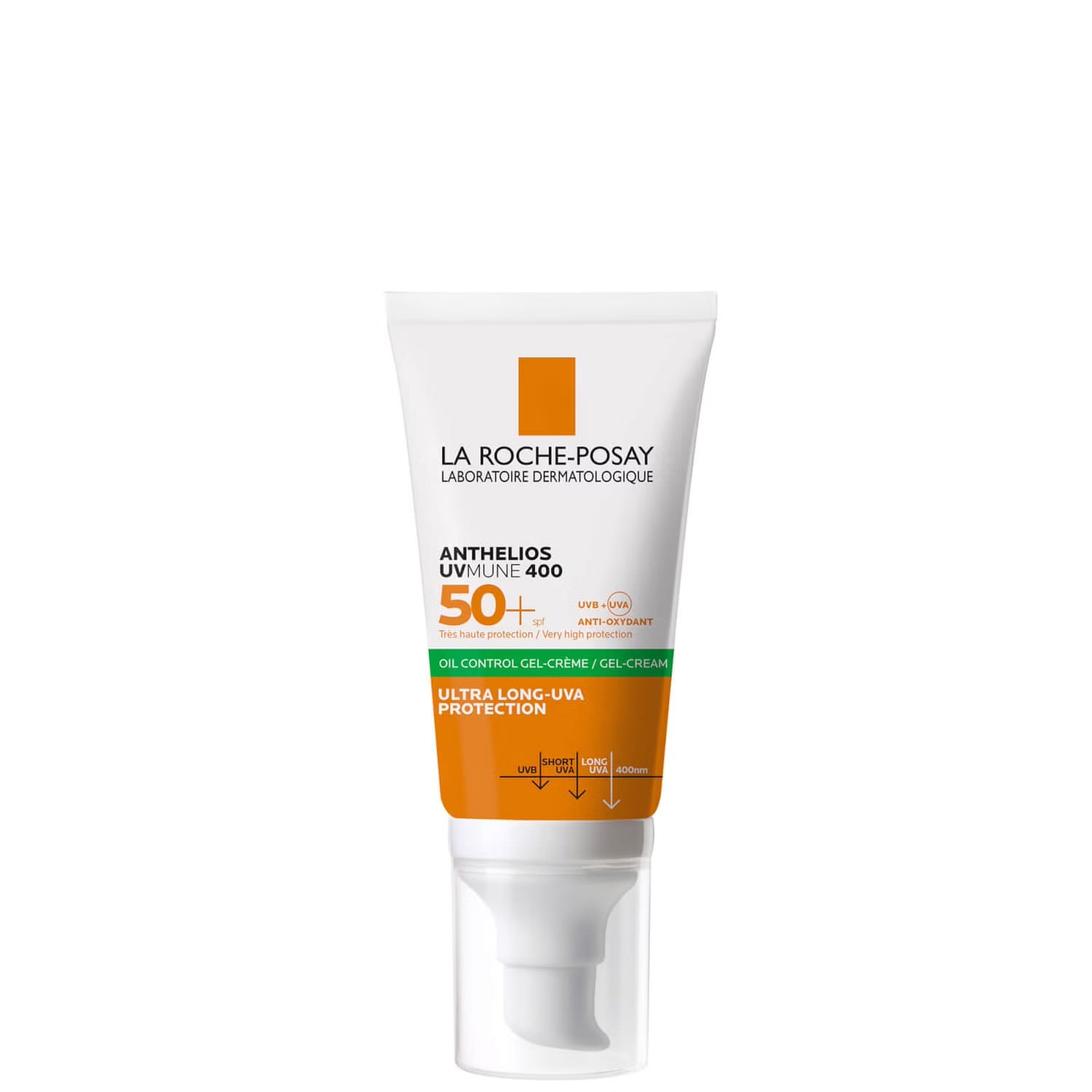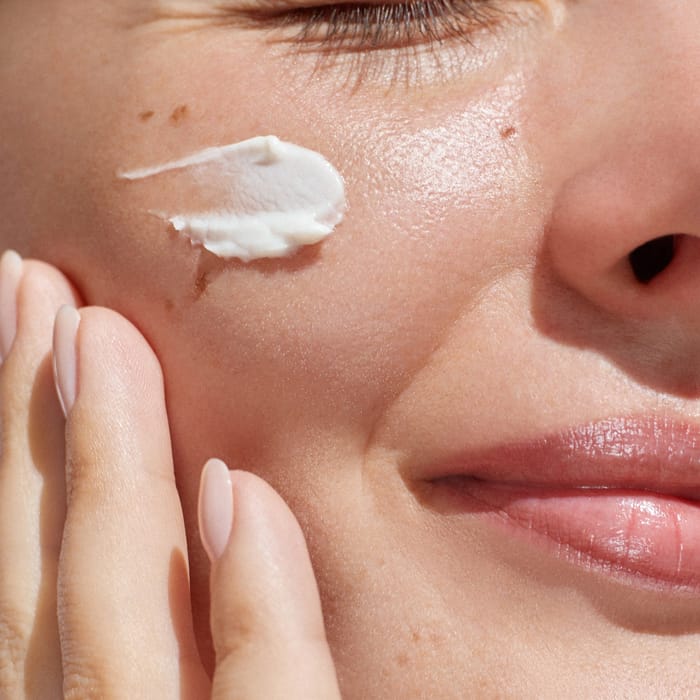The Ultimate Guide to Sunscreen: Protection, Types, and Choosing the Right One for Your Skin
As the days grow longer and the sun shines brighter, it's the perfect time to talk about one of the most essential items in your skincare routine: sunscreen. With summer just around the corner, protecting your skin from harmful UV rays is more important than ever.
With so many new sunscreens on the market each year, choosing the right sunscreen for your skin type can be overwhelming. So let's dive into understanding the differences between mineral and chemical sunscreens and tips for selecting the best one for you. The most important thing to remember is that sunscreen is more than just an optional extra - it's a must-have for everyone.

The Importance of Sunscreen
First things first, why is sunscreen so important? Sunscreen is your skin's best defence against harmful ultraviolet (UV) rays. These rays come in two main types: UVA and UVB.
- UVA Rays: UVA rays penetrate the skin more deeply than UVB rays. They reach the dermis, the thickest layer of the skin. UVA rays are primarily responsible for causing long-term skin damage such as premature aging, including wrinkles and age spots. On a biological level, UVA rays can generate free radicals, leading to oxidative stress and DNA damage, which can compromise skin cells and potentially lead to skin cancer.
- UVB Rays: UVB rays affect the outer layer of the skin, the epidermis. They are the primary cause of sunburn and play a significant role in the development of skin cancer. UVB rays can directly damage the DNA in skin cells, leading to mutations that can result in skin cancer. Unlike UVA rays, UVB rays can vary in intensity depending on the time of day, season, and location.
Both UVA and UVB rays can contribute to the risk of skin cancer, including melanoma, the most dangerous form of skin cancer. Daily use of sunscreen helps protect against these harmful effects, ensuring your skin stays healthy and youthful.
But the benefits don't stop there. Regular use of sunscreen can also prevent hyperpigmentation and dark spots, helping to maintain an even skin tone. Plus, it helps to keep your skin's natural barrier intact, which is crucial for overall skin health.

How Sunscreen Works
So, how exactly does sunscreen protect your skin? Sunscreen works by absorbing, reflecting, or scattering UV radiation. Here’s a deeper dive into how these mechanisms function:
- Absorbing UV Radiation: Chemical sunscreens contain organic (carbon-based) compounds like avobenzone, octinoxate, and oxybenzone. These compounds absorb UV radiation, convert it into heat, and then release the heat from the skin. This process helps prevent the UV rays from penetrating the skin and causing damage. The absorption occurs at a molecular level where the UV energy excites the electrons within the sunscreen molecules, which then dissipate the energy as heat.
- Reflecting and Scattering UV Radiation: Mineral sunscreens, on the other hand, use inorganic compounds like zinc oxide and titanium dioxide. These ingredients act as physical blockers that sit on top of the skin and reflect or scatter UV rays away from the skin. These particles create a physical barrier that prevents the rays from penetrating the skin. This mechanism is effective immediately upon application, unlike some chemical sunscreens that require about 15-20 minutes to become effective.
The Sun Protection Factor (SPF) on your sunscreen indicates how well it protects against UVB rays. For example, SPF50 is said to block approximately 98% of UVB rays, SPF30 about 97% and SPF15 about 93%. No sunscreen can block 100% of UV rays, but higher SPF numbers do offer more protection. The higher the SPF, the longer you are generally protected for. Broad-spectrum sunscreens provide protection against both UVA and UVB rays, offering comprehensive coverage.
When applying sunscreen, it's essential to use the right amount. It's recommended to reapply every two hours, especially after swimming, sweating, or towelling off, to maintain effective protection.

Types of Sunscreen: Chemical vs. Mineral
Choosing the right sunscreen type can be confusing, so let's break it down.
Chemical Sunscreens:
As we know, chemical sunscreens absorb UV radiation and convert it into heat, which is then released from the skin. Chemical sunscreens tend to be lightweight and easy to apply without leaving a white cast. However, they can sometimes cause irritation, especially for sensitive skin types.
Mineral Sunscreens:
Mineral sunscreens, also known as physical sunscreens physically block and reflect UV rays away from the skin. These sunscreens are often recommended for sensitive skin as they are less likely to cause irritation. The downside? They can leave a white residue on the skin, although many modern formulations have improved to minimise this effect.
Choosing the Best Sunscreen for Your Skin Type
Finding the right sunscreen for your skin type can make a huge difference in your daily routine. Here are some tips to help you choose the best one:
Dry Skin:
If you have dry skin, look for sunscreens with hydrating ingredients like hyaluronic acid and glycerin. Cream-based formulations can provide additional moisture and prevent your skin from feeling tight or dry. Here are a few recommendations:



- La Roche-Posay Anthelios Melt-in Milk Sunscreen SPF 60
This sunscreen is highly moisturising and provides broad-spectrum protection while ensuring your skin stays hydrated and comfortable.
Shop La Roche-Posay Anthelios Melt-in Milk Sunscreen SPF60 - Kiehl’s Ultra Light Daily UV Defense Aqua Gel SPF 50
This lightweight, water-based sunscreen is perfect for dry skin as it hydrates without feeling heavy. It offers high SPF protection and is enriched with vitamin E to nourish the skin.
Shop Kiehl's Ultra Light Daily UV Defense Aqua Gel SPF50 - CeraVe Hydrating Mineral Sunscreen SPF 50
This mineral sunscreen is formulated with ceramides and hyaluronic acid to maintain the skin’s moisture barrier and provide hydration. It’s also fragrance-free and non-comedogenic.
Shop CeraVe Hydrating Mineral Sunscreen SPF50
Oily or Acne-Prone Skin:
For oily or acne-prone skin, opt for non-comedogenic and oil-free formulas that won't clog pores. Gel-based or lightweight lotions are ideal. Ingredients like niacinamide can help control oil production and reduce breakouts.



- Murad Oil and Pore Control Mattifier Broad Spectrum SPF 45
This mattifying sunscreen controls oil and minimizes pores, making it ideal for oily and acne-prone skin. It also offers broad-spectrum SPF protection.
Shop Murad Oil and Pore Control Mattifier Broad Spectrum SPF45 - Paula’s Choice Clear Ultra-Light Daily Hydrating Fluid SPF 30
This ultra-light, fluid sunscreen is perfect for acne-prone skin. It hydrates without clogging pores and provides broad-spectrum protection.
Shop Paula's Choice Clear Ultra-Light Daily Hydrating Fluid SPF30 - Origins GinZing SPF 40 Energy-Boosting Tinted Moisturiser
This tinted moisturiser with SPF is great for oily skin, providing a matte finish while protecting against UV rays. It also helps to even out skin tone with a natural tint.
Shop Origins GinZing SPF40 Energy-Boosting Tinted Moisturiser
Sensitive Skin:
Sensitive skin benefits from mineral sunscreens, which are less likely to cause irritation. It's recommended to choose products that are fragrance-free and hypoallergenic to avoid any adverse reactions.



- Avène Very High Protection Cream SPF50+
This mineral sunscreen is gentle on sensitive skin and enriched with Avène thermal spring water to soothe irritation. It provides high protection without causing sensitivity.
Shop Avene Very High Protection Cream SPF50+ - REN Clean Screen Mineral SPF 30
Formulated with sensitive skin in mind, this mineral sunscreen offers broad-spectrum protection and includes rice extract to mattify and reduce shine. It’s also free from silicones and synthetic fragrances.
Shop REN Clean Screen Mineral SPF30 - Dr. Dennis Gross All-Physical Lightweight Wrinkle Defense SPF 30
This sunscreen is 100% mineral-based and ideal for sensitive skin. It provides broad-spectrum protection while being lightweight and non-irritating. It also has anti-aging benefits.
Shop Dr.Dennis Gross All-Physical Lightweight Wrinkle Defense SPF30
Normal/Combination Skin:
If you have normal or combination skin, you have the flexibility to choose based on your texture preference. Broad-spectrum protection is essential, so select a sunscreen that you enjoy applying daily.



- Supergoop! Unseen Sunscreen SPF 30
This weightless, invisible sunscreen is perfect for normal and combination skin types. It provides broad-spectrum SPF 30 protection and can double as a primer under makeup.
Shop Supergoop! Unseen Sunscreen SPF30 - La Roche-Posay Anthelios XL Anti-Shine Dry Touch Gel-Cream SPF50+
This gel-cream sunscreen offers high protection with a matte finish, making it suitable for normal and combination skin. It’s non-comedogenic and formulated to reduce shine.
Shop La Roche-Posay Anthelios XL Anti-Shine Dry Touch Gel-Cream - Murad City Skin Age Defense Broad Spectrum SPF50
Murad City Skin Age Defense Broad Spectrum SPF 50 offers comprehensive protection against UVA, UVB, pollution, blue light, and infrared radiation. Its lightweight, non-greasy formula is perfect for daily use under makeup, providing robust SPF 50 coverage and brightening the skin. Ideal for urban environments, it shields your skin from various stressors while maintaining a radiant complexion.
Shop Murad City Skin Age Defense Broad Spectrum SPF50
Active or Outdoor Lifestyle:
For those who spend a lot of time outdoors, water-resistant formulas with high SPF (50+) are a must. These sunscreens offer longer-lasting protection even when you're swimming or sweating.



- Ultrasun Extreme SPF 50+
This sunscreen offers very high protection and is designed for extreme sun exposure. It’s water-resistant and suitable for sensitive skin, making it perfect for active lifestyles.
Shop Ultrasun Extreme SPF50+ - Coola Classic Body Organic Sunscreen Spray SPF 50
This easy-to-apply spray sunscreen is perfect for on-the-go protection. It’s water-resistant for up to 80 minutes and provides broad-spectrum SPF 50 protection.
Shop Coola Classic Body Organic Sunscreen Spray SPF50 - Shiseido Expert Sun Protector Face and Body Loton SPF50+
Its lightweight, water-resistant formula is perfect for active lifestyles and outdoor activities. The lotion provides broad-spectrum defense while hydrating and nourishing the skin, ensuring a comfortable, non-greasy feel. Ideal for both face and body, it keeps your skin safe and healthy under the sun.
Shop Shiseido Expert Sun Protector Face and Body Lotion SPF50+
Whichever sunscreen you choose to use, it's a non-negotiable part of any skincare routine. It protects your skin from harmful UV rays, prevents premature aging, and maintains your skin's health. Whether you prefer chemical or mineral sunscreens, the key is to find one that suits your skin type and lifestyle. By incorporating sunscreen into your daily routine, you'll ensure that your skin remains healthy, radiant, and youthful for years to come.


